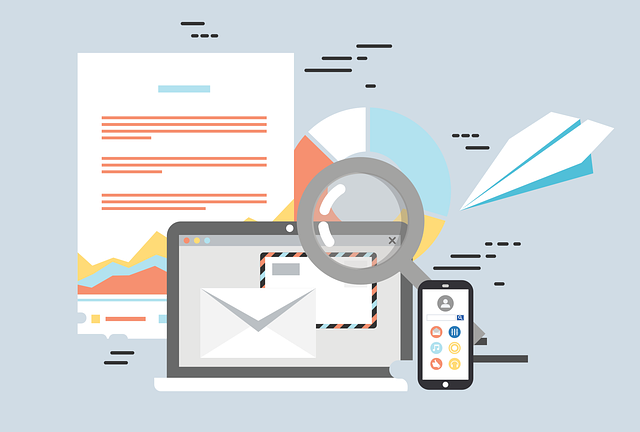AI-powered marketing solutions have transformed the automotive industry, offering personalized experiences through machine learning algorithms that analyze customer data. These technologies streamline communication with chatbots and enable targeted advertising. Implementing AI strategies can significantly enhance operational efficiency and customer satisfaction in auto businesses, but challenges like infrastructure investment and data privacy concerns must be addressed through strategic planning.
“Unleash the transformative power of AI for auto businesses! In an era driven by technological innovation, AI-powered marketing solutions for automotive shops are revolutionizing customer engagement and operations. This comprehensive guide explores strategic implementations, from understanding targeted AI marketing to a step-by-step integration process. We delve into the benefits, such as personalized experiences and data-driven decisions, while navigating challenges like initial costs and privacy concerns. Discover how these strategies can elevate your automotive business in today’s competitive market.”
- Understanding AI-Powered Marketing for Automotive Businesses
- Implementing AI Solutions: A Step-by-Step Guide
- Benefits and Challenges of AI Integration in Auto Shops
Understanding AI-Powered Marketing for Automotive Businesses

In today’s digital era, AI-powered marketing solutions for automotive shops have emerged as a game-changer in the industry. These advanced technologies enable businesses to offer personalized experiences to customers, from predictive maintenance reminders to tailored service recommendations. By leveraging machine learning algorithms, auto companies can analyze vast amounts of customer data to understand their preferences and behaviors, thereby enhancing the overall customer journey.
AI marketing strategies allow automotive businesses to streamline their communication with clients. Chatbots, for instance, can handle initial customer inquiries, providing quick responses and support around the clock. Moreover, AI-driven analytics can segment customers based on their purchase history and online behavior, enabling more targeted and effective advertising campaigns. This level of customization not only boosts customer satisfaction but also increases the chances of repeat business and referrals.
Implementing AI Solutions: A Step-by-Step Guide

Implementing AI solutions can transform auto businesses, enhancing efficiency and customer experience. Here’s a step-by-step guide to integrate AI-powered marketing strategies for automotive shops:
1. Assess Current State & Define Goals: Begin by evaluating your shop’s current processes and identifying pain points. Set clear objectives for AI implementation, focusing on areas like predictive maintenance, inventory management, or personalized customer interactions. For instance, using AI to forecast parts demand can optimize stock levels and reduce waste.
2. Choose the Right AI Tools: With numerous AI options available, select tools aligned with your goals. AI-powered marketing solutions for auto businesses might include chatbots for customer support, predictive analytics to target specific car owners, or automated lead scoring systems to prioritize prospects. Tools like these can be easily integrated into existing systems and workflows, ensuring a smoother transition.
Benefits and Challenges of AI Integration in Auto Shops

The integration of Artificial Intelligence (AI) into auto businesses presents a myriad of advantages, revolutionizing how automotive shops operate. AI-powered marketing solutions for automotive shops can significantly enhance customer experience and engagement. Through data analytics, AI can provide valuable insights into customer preferences, enabling personalized marketing campaigns that increase sales and retention. For instance, AI chatbots can offer instant support to customers, answer queries, and even guide them through the purchasing process, mirroring a seamless human interaction.
However, navigating this technological shift comes with its challenges. Implementing AI requires substantial investment in infrastructure and skilled personnel. Auto shops must overcome potential issues like data privacy concerns, especially when handling sensitive customer information. Additionally, keeping up with rapid advancements in AI technology can be daunting, necessitating continuous training and adaptation to stay relevant. Nonetheless, with strategic planning and the right resources, these challenges can be surmounted, paving the way for AI to transform auto businesses into efficient, competitive, and customer-centric operations.
AI-powered marketing solutions are transforming the automotive industry, offering auto businesses unprecedented opportunities to enhance customer engagement and streamline operations. By implementing these innovative strategies, from data-driven insights to personalized experiences, automotive shops can stay competitive in today’s digital era. While challenges exist, such as data privacy concerns and initial investment costs, a step-by-step approach ensures successful AI integration, ultimately driving business growth and improving overall customer satisfaction.
